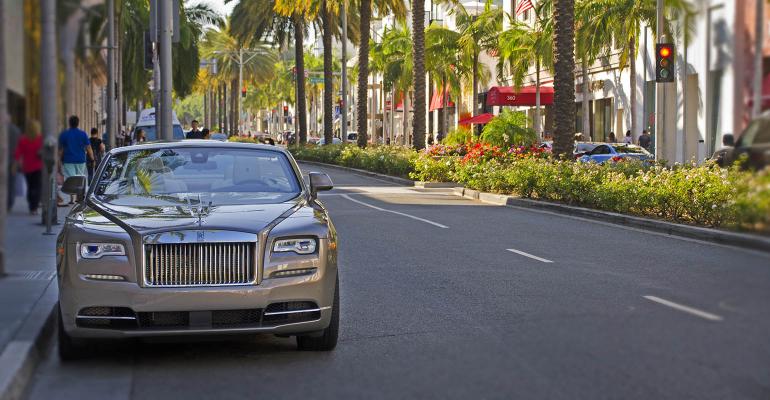(Bloomberg Opinion) -- It’s curious: Even as America’s economic trends are improving, Americans’ economic anxieties are worsening — including those of many who have no apparent reason to be worried. Not only are there are polls and statistics that illustrate the point, but there are also anecdotes, lots of anecdotes.
Of course stories about the struggles of the well-off, often set in New York City, are a hardy perennial, as is the online pile-on that inevitably follows. But there is something different about this moment. The plight of the high-income, low-wealth American is getting worse — and while it can be hard to sympathize with someone who earns six figures a year and has a condo in Hawaii, affluent but financially poor households are a growing demographic that is making the US economy more vulnerable.
High-earners who feel financially stretched were recently featured in a Bloomberg News story. All of them (including one with a condo in Hawaii) earn good salaries, but most of them don’t have much savings, in part because of recent inflation and in part because of the rising cost of services. Some of the services are necessary — housing, college, child care, and so on — and some of them aren’t.
Regardless, what is striking about those services is their cost. All this spending helps explain why non-retirement financial asset holding has fallen for people (age 35 to 59) earning between $150,000 and $450,000 over the last few decades.
It is worth noting that there is also a decline, though not as severe, if you include retirement assets. Retirement saving may be crowding out more liquid saving. Which means these households are in decent shape for retirement, but they also are more vulnerable to shocks in their working years.
The data here ends in 2019, and odds are that, initially, things got better during the pandemic. But a few years of inflation, especially in services and revenge travel, have brought many households back to where they started or worse. Many Americans, even at the upper end, have not seen a real wage increase in years.
Yes, many high earners have a decent amount of cash or its equivalent. But savings are less than what they used to be, and those in the 25th percentile are asset-poor relative to their income and lifestyle. They feel poor because they are — in the sense that they don’t have much in the way of financial assets, and are vulnerable to big drop in living standards if they lose their job, need expensive medical care or get divorced.
This is not, I concede, the biggest problem facing the US economy; a far greater concern is the financial precarity of the bottom 50% who are living paycheck-to-paycheck. But the financial situation of the affluent is a problem because it makes the overall economy more precarious. The size of the upper middle class has grown over the years, and it accounts for a large share of the economy’s consumption base, especially when it comes to discretionary purchases — which tend to fall off a cliff in a bad economy. If a recession does hit, it might mean bigger drops in the consumption that props up the larger economy.
What can be done to address this problem? Part of it is the keeping-up-with-the-Joneses culture of consumption, worsened by social media. But bad public policy also deserves some share of the blame. Many services — higher education and health care come to mind — are more expensive because of government subsidies or support. Restrictive zoning and the mortgage deduction help contribute to expensive housing. Adding even more subsidies will make the problem worse.
A better solution is to encourage saving, levy a tax on high-end consumption, and offer more tax incentives (or impose fewer penalties) for non-retirement saving. The goal should be to move to an economy whose growth comes from productivity, not consumption of high-end services.
The temptation is always to blame the person who earns a high income yet has the audacity to complain about feeling poor because he is living paycheck to paycheck. I am not arguing that the anxious affluent deserve your sympathy; that’s between you and your conscience. I’m just saying that their anxiety is a symptom of a fragile economy, not a cause of it.
Elsewhere in Bloomberg Opinion:
- RIP, Recession, But Is Inflation Now a Worry?: Conor Sen
- Anxious About a Recession? Think Like a Freelancer: Erin Lowry
- The US Economy Is Not a Plane and It Won’t Land Softly: Niall Ferguson
For more Bloomberg Opinion, subscribe to our newsletter.
To contact the author of this story:
Allison Schrager at [email protected]





